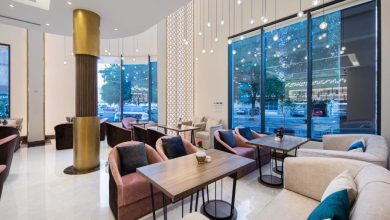
Transforming Retail Operations: The Power of ERP for the Retail
To stay competitive and relevant in this dynamic landscape, retailers must embrace technology-driven solutions that streamline operations, enhance customer experiences, and drive business growth. Enterprise Resource Planning (ERP) systems have emerged as a game-changing solution for the retail industry. In this article, we will explore the significance of ERP for retail, its key benefits, and how it revolutionizes the way retailers manage their business processes and optimize their operations.
I. Understanding ERP for Retail : Transforming Retail Operations: The Power of ERP for the Retail
- What is ERP for Retail?
ERP for retail is a comprehensive software solution that integrates and centralizes various retail business processes into a unified platform. It covers a wide range of functionalities, including inventory management, order processing, sales and marketing, customer relationship management (CRM), supply chain management, financials, human resources, and more. By consolidating these functions into one system, retailers can achieve greater efficiency, better visibility, and improved decision-making capabilities.
- The Importance of ERP for Retail
As retailers expand their operations and face increasing competition from both online and brick-and-mortar stores, they must streamline their processes to meet consumer demands and optimize their resources. ERP for retail provides a cohesive solution to manage diverse tasks, enabling retailers to improve operational efficiency, reduce costs, and deliver superior customer experiences.
II. Key Benefits of ERP for Retail
- Streamlined Inventory Management
Effective inventory management is critical for retail success. ERP for retail provides real-time visibility into inventory levels, enabling retailers to optimize stock levels, reduce stockouts, and minimize holding costs. The system automates inventory replenishment, ensuring products are available when and where they are needed.
- Enhanced Customer Experience
In the competitive retail landscape, customer experience is a key differentiator. ERP for retail includes CRM capabilities that enable retailers to track customer interactions, analyze buying behavior, and personalize marketing efforts. This data-driven approach fosters customer loyalty and helps retailers deliver personalized experiences.
- Omni-Channel Integration
With the rise of omnichannel retailing, consumers expect a seamless shopping experience across various channels, including online, in-store, mobile, and social media. ERP for retail facilitates omnichannel integration, enabling retailers to synchronize inventory, pricing, promotions, and customer data across all touchpoints.
- Improved Supply Chain Management
An efficient supply chain is essential for timely product delivery and cost control. ERP for retail optimizes supply chain processes by automating procurement, supplier management, and demand forecasting. This enhances overall supply chain visibility, reduces lead times, and mitigates the risk of overstocking or stockouts.
- Accurate Financial Reporting and Analytics
ERP for retail generates accurate financial reports and analytics, giving retailers insights into profitability, cash flow, and cost drivers. Retailers can make informed decisions based on real-time financial data, enabling them to identify and address inefficiencies.
- Efficient Point-of-Sale (POS) System
A robust ERP for retail often includes a sophisticated POS system. The integrated POS streamlines checkout processes, accepts various payment methods, and synchronizes sales data with inventory and financial systems.
III. Key Features of ERP for Retail
- Inventory Management
ERP for retail offers comprehensive inventory management features, including stock tracking, order fulfillment, stock transfers, and automated reorder points.
- Customer Relationship Management (CRM)
CRM capabilities enable retailers to manage customer data, track interactions, and create targeted marketing campaigns to enhance customer engagement.
- Sales and Order Management
ERP for retail streamlines the entire sales process, from quote to order fulfillment. This feature includes managing sales orders, processing returns, and generating sales reports.
- Financial Management
ERP for retail includes robust financial management tools, such as accounts payable, accounts receivable, general ledger, and financial reporting.
- Supplier Management
Retailers can efficiently manage suppliers, monitor supplier performance, and automate purchase order creation and processing.
- Supply Chain and Distribution
ERP for retail optimizes supply chain and distribution processes, including demand forecasting, inventory transfers, and supplier collaboration.
IV. ERP for Retail Implementation Best Practices : The Power of ERP for the Retail
- Define Business Objectives: Before implementation, retailers must define their specific business objectives and align them with the ERP system’s capabilities.
- Data Cleansing and Migration: Ensure that data is accurate, consistent, and properly migrated to the new ERP system to prevent data discrepancies and errors.
- Employee Training and Change Management: Comprehensive training for employees is essential to ensure successful ERP adoption and utilization. Address any change management challenges that may arise during the implementation process.
- Modular Approach: Consider implementing the ERP system in modules to ease the transition and allow for better testing and feedback.
- Regular Updates and Support: Stay up-to-date with the latest ERP updates and features to maximize the system’s benefits. Invest in ongoing support to address any issues promptly.
V. Case Study: The Impact of ERP for Retail Implementation
A leading fashion retailer with multiple stores and an online presence struggled with fragmented operations and data silos. After implementing ERP for retail, the company experienced significant improvements in inventory management, sales forecasting, and customer service. By integrating their brick-and-mortar stores and e-commerce platform, the retailer achieved seamless inventory synchronization, eliminating stockouts and optimizing order fulfillment. The CRM capabilities helped the retailer deliver personalized marketing campaigns, resulting in increased customer engagement and loyalty. Financial reporting and analytics enabled better cost control and resource allocation. The ERP implementation not only improved the retailer’s operational efficiency but also elevated its brand image and customer satisfaction.
Conclusion
In the ever-evolving retail industry, ERP for retail has emerged as a crucial tool for retailers seeking to optimize their operations, improve customer experiences, and achieve sustainable growth. By consolidating various business processes into one unified platform, retailers gain real-time visibility, enhanced analytics, and streamlined operations. The benefits of Transforming Retail Operations: The Power of ERP for the Retail Industryextend beyond operational efficiencies, as it empowers retailers to deliver personalized experiences, enhance supply chain management, and gain a competitive edge in the marketplace. As technology continues to transform the retail landscape, embracing ERP for retail is not just a strategic move but a necessity for retailers aiming to thrive and succeed in the new era of retailing.




